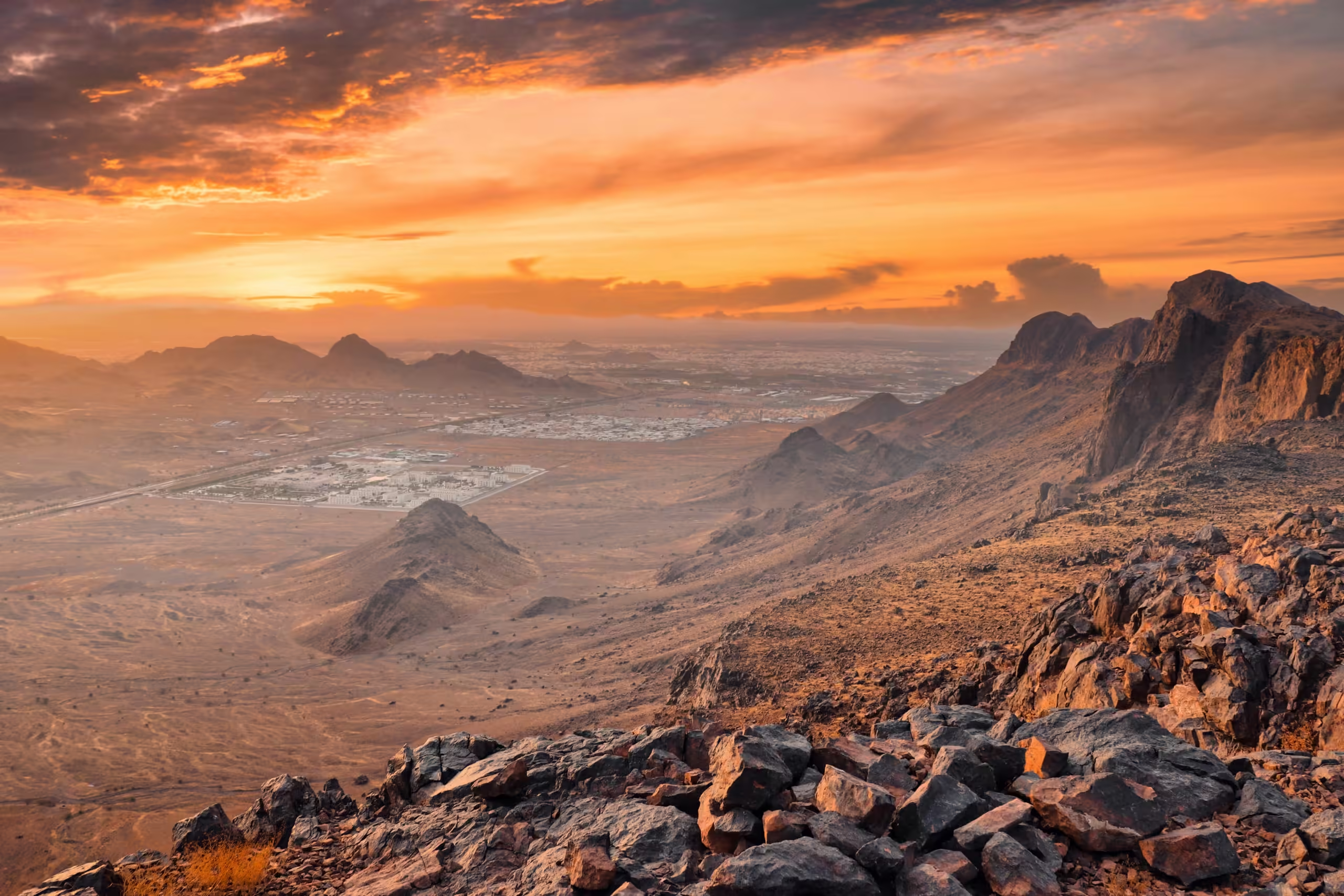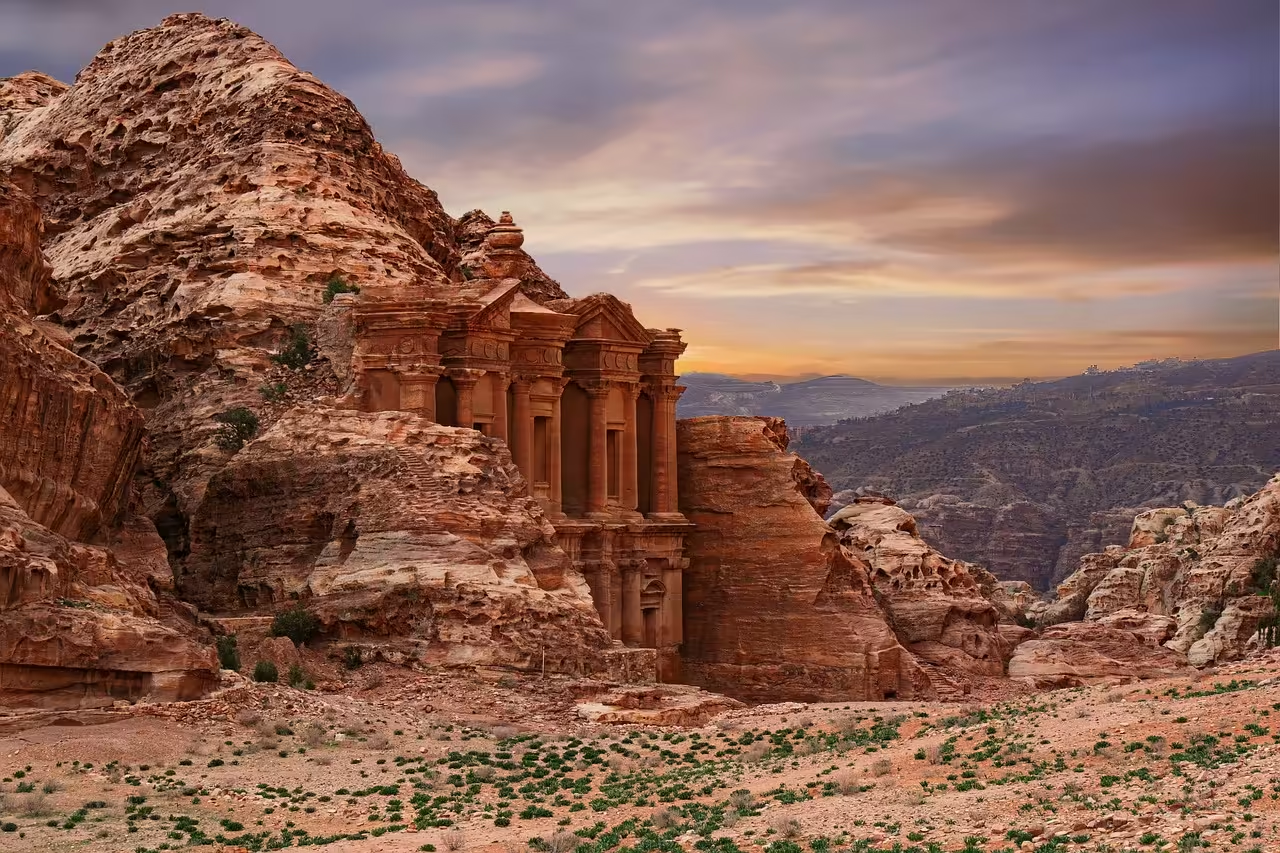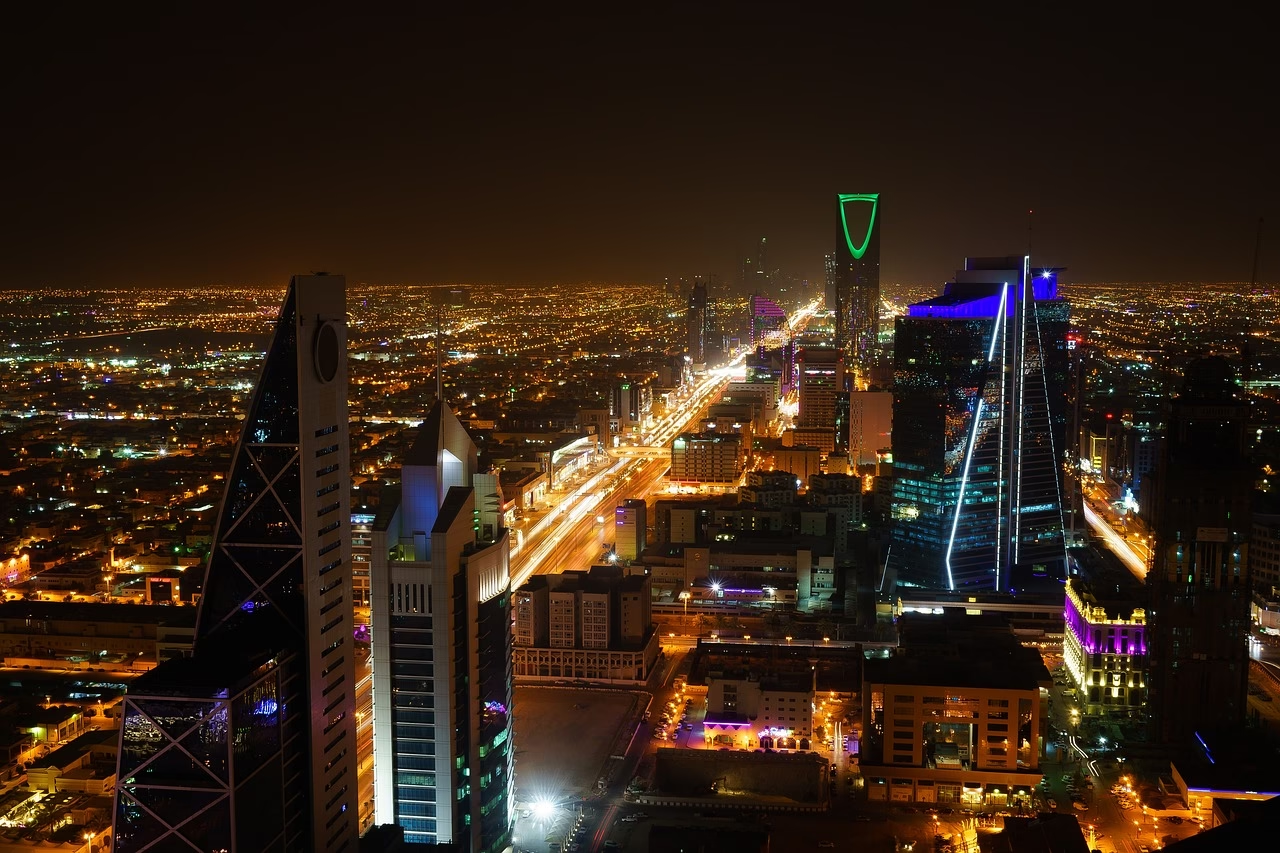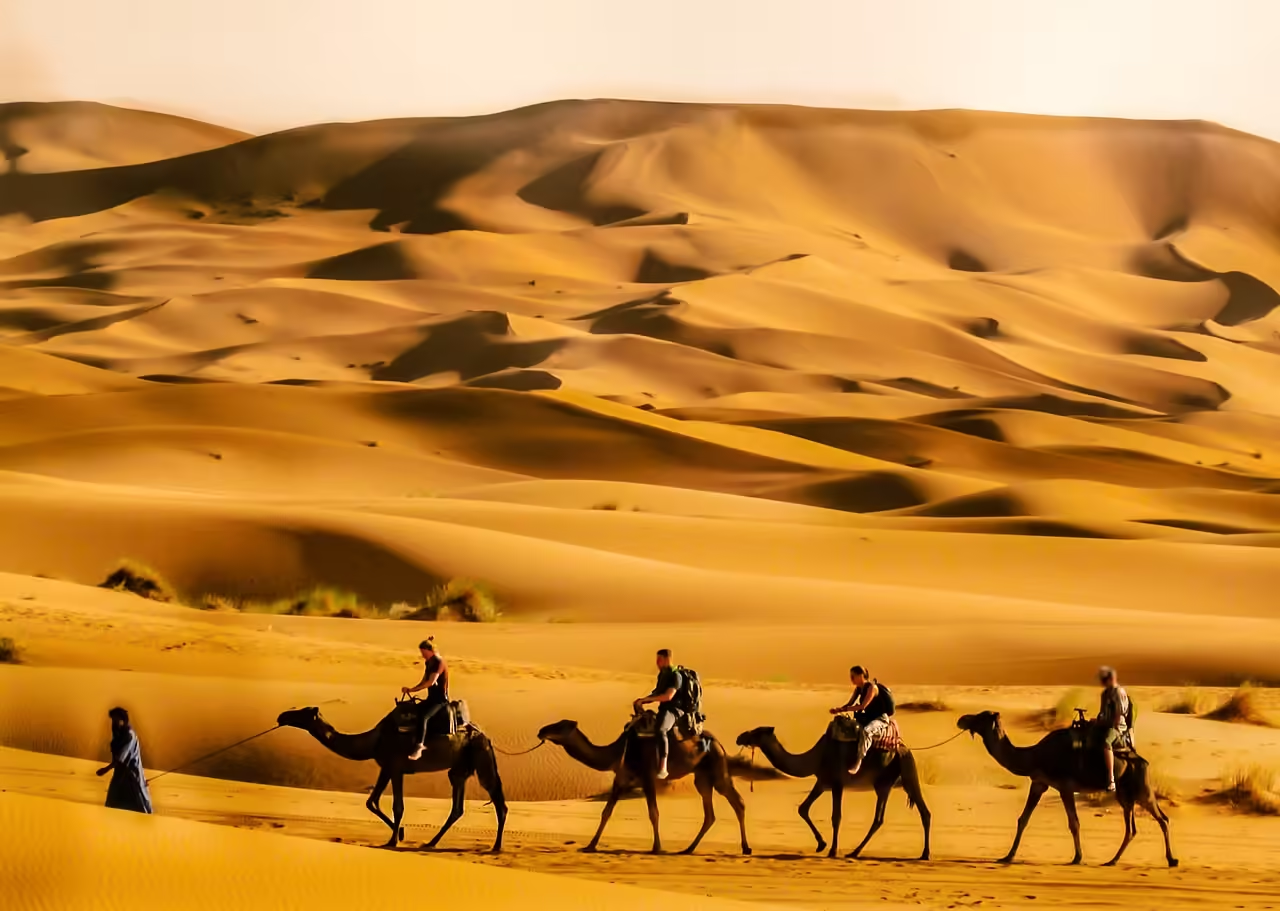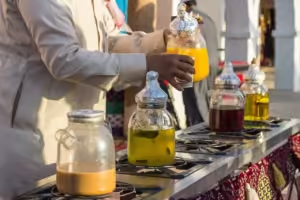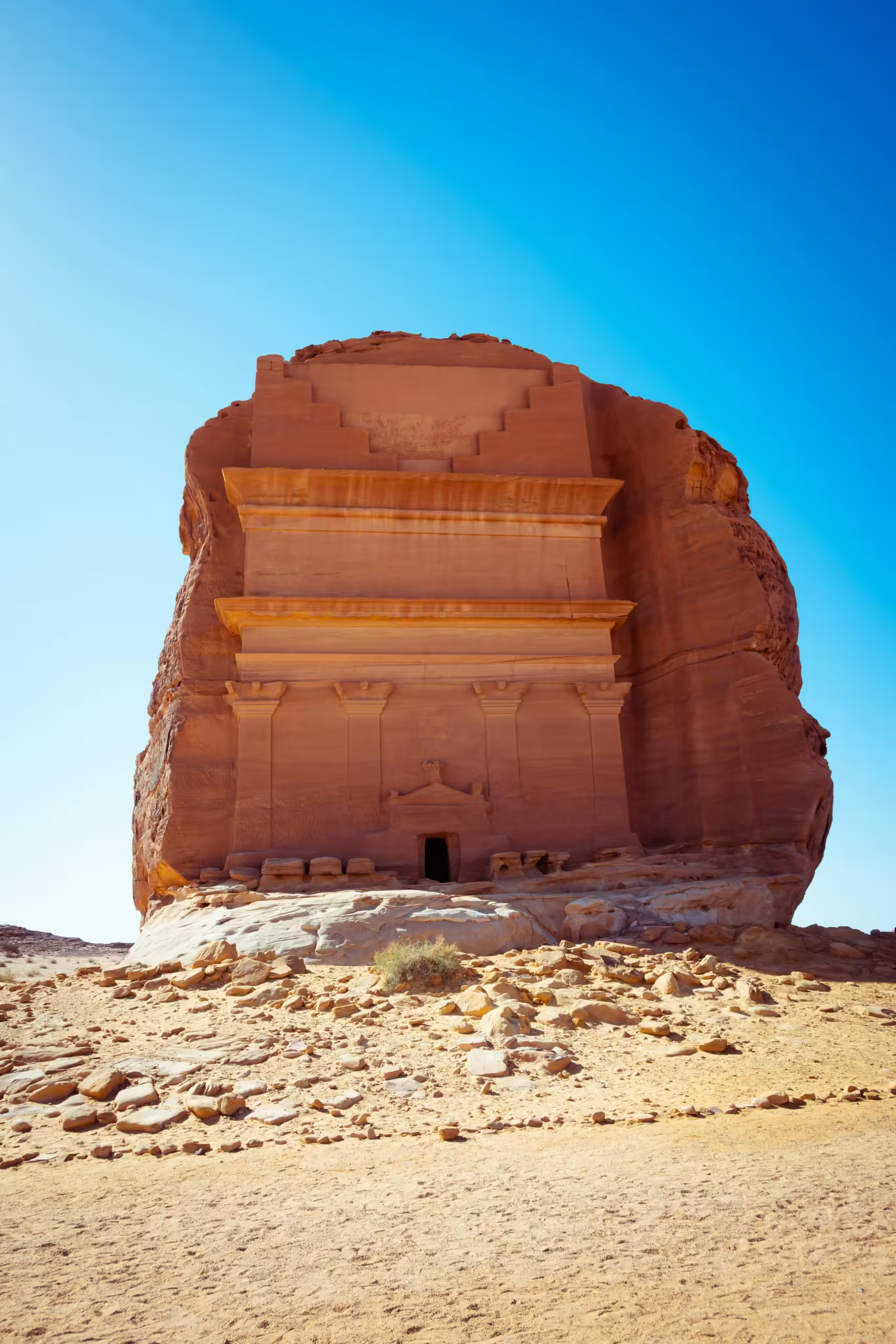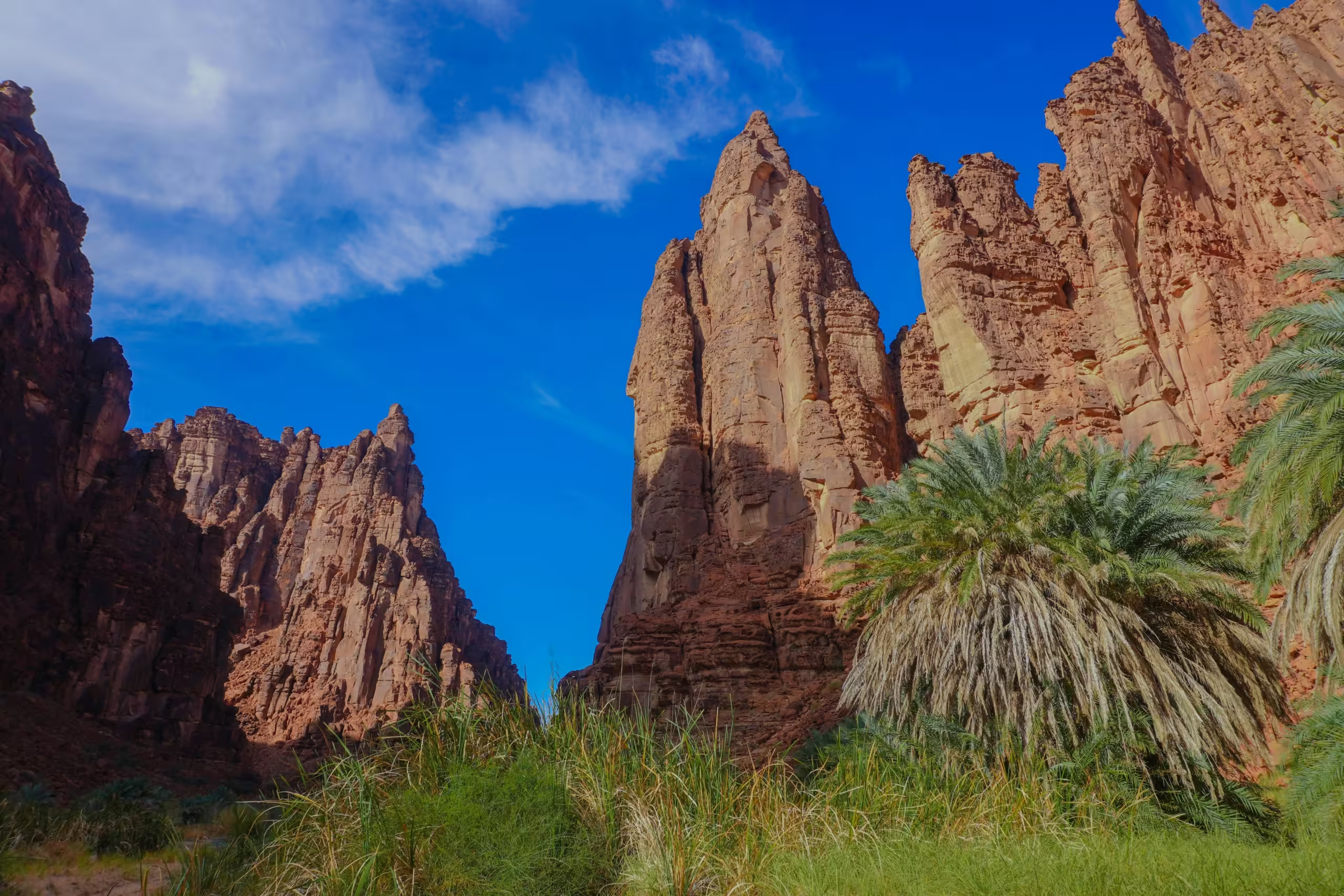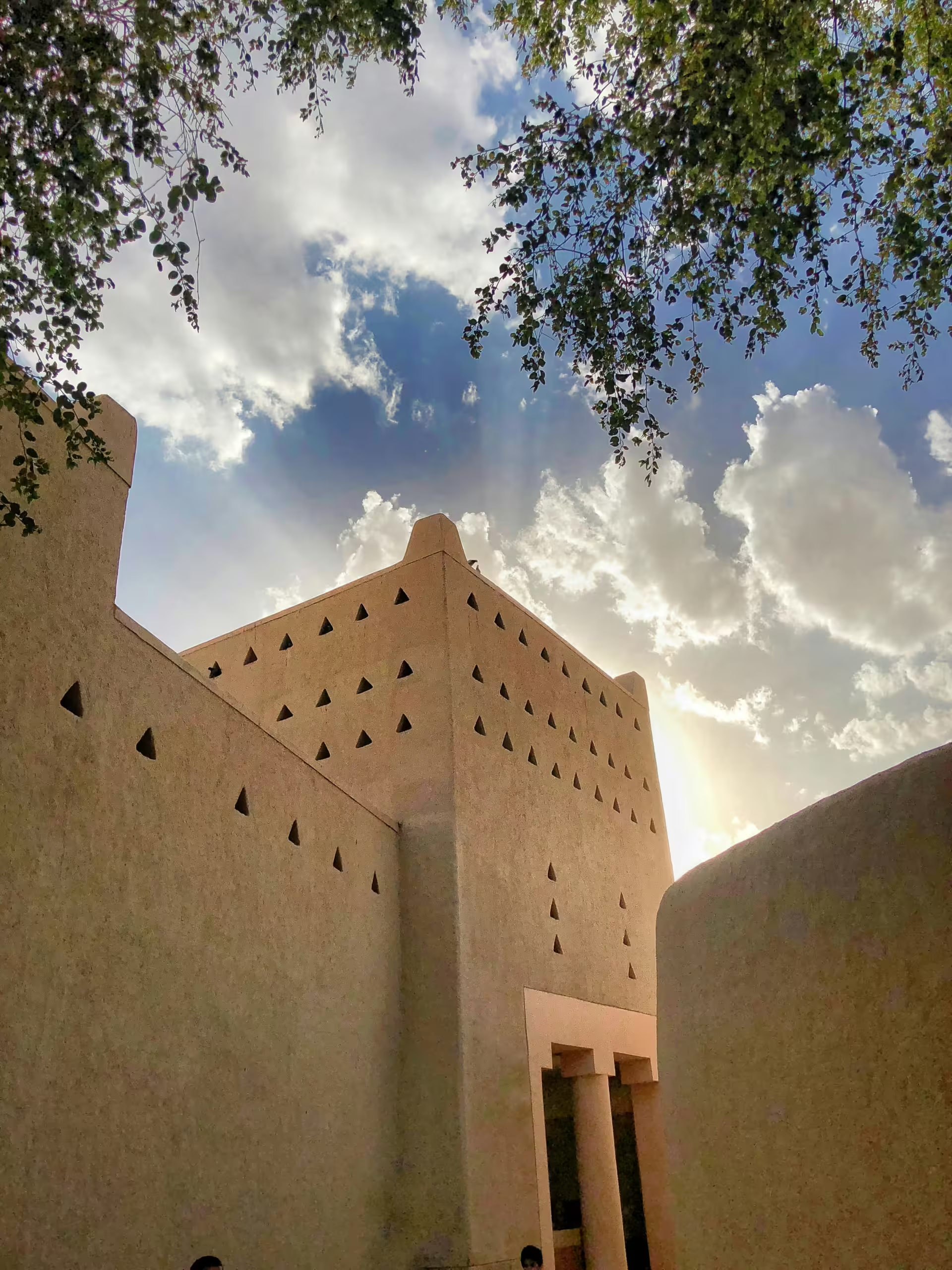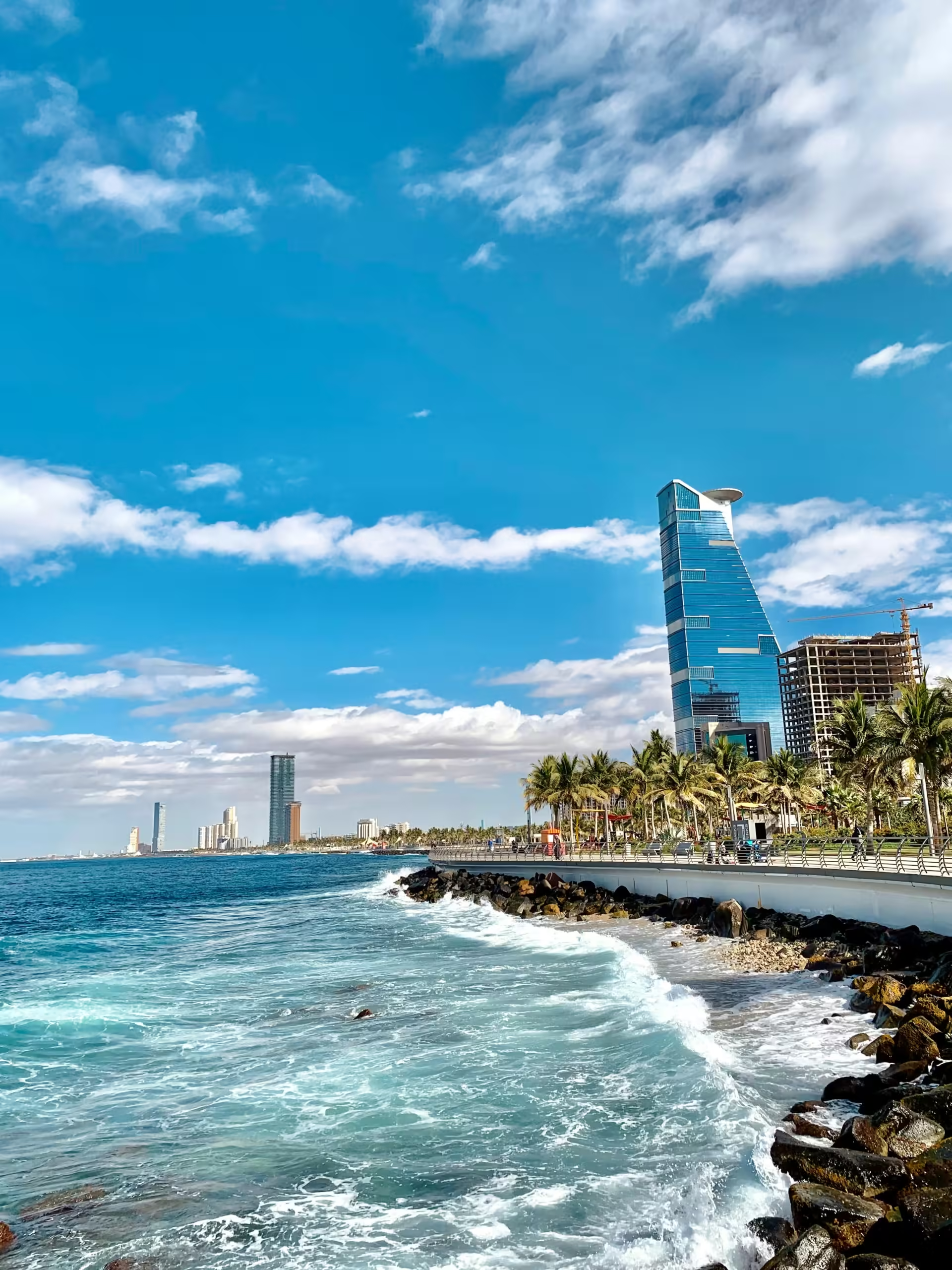Reasons to visit Saudi Arabia
Discover the Allure of Saudi Arabia Holidays
Saudi Arabia has rapidly become one of the most captivating destinations for travellers seeking a blend of history, culture, nature, and modern experiences. Saudi Arabia holidays are increasingly popular among those looking for something beyond the ordinary.
Whether you're drawn to ancient civilisations, spiritual journeys, or dramatic landscapes, the Kingdom offers a wide range of experiences that cater to curious and adventurous travellers alike.
Step Back in Time. Ancient Wonders and Cultural Heritage
For history enthusiasts, Saudi Arabia is a treasure trove of archaeological marvels. One of the most remarkable sites is AlUla, a historic city surrounded by striking desert scenery and sandstone formations. At its heart lies Hegra, the country’s first UNESCO World Heritage Site. This ancient Nabataean city features intricately carved tombs that date back over 2,000 years, offering a glimpse into a civilisation that flourished long before the rise of Islam.
Visitors to AlUla can explore these tombs on foot, guided by immersive storytelling and cultural exhibitions that bring the past to life. The experience is both educational and deeply atmospheric, making it a highlight of many Saudi Arabia holidays.
Another key destination is Diriyah, the birthplace of the Saudi state and the ancestral home of the royal family. Here, restored mud-brick buildings and fortresses tell the story of the Kingdom’s early days. Walking through its narrow lanes, visitors can appreciate the craftsmanship and architectural traditions that shaped the region.
These historical sites are not just relics of the past, they are part of a living culture that continues to evolve while honouring its roots.
A Spiritual Journey: Mecca, Medina, and Beyond
Saudi Arabia holds a special place in the hearts of Muslims around the world. As the location of Mecca and Medina, the two holiest cities in Islam, it offers a deeply spiritual experience for those undertaking religious journeys.
Each year, millions of Muslims travel to perform Hajj, a pilgrimage that represents unity, devotion, and faith. Outside of the Hajj season, many choose to perform Umrah, a shorter pilgrimage that still allows for reflection and connection with sacred traditions.
To support this growing interest, the Kingdom has invested in improving its religious tourism infrastructure. Enhanced transport links, accommodation options, and visitor services have made it easier for Muslims from all backgrounds to access these important sites.
At the same time, Saudi Arabia has opened its doors to non-Muslim travellers. While access to Mecca and Medina remains restricted, visitors can still explore the country’s rich cultural heritage and witness the significance of these cities from a respectful distance. This inclusive approach allows more people to appreciate the spiritual depth of the region without needing to participate in religious practices.
Nature’s Diversity: From Mountains to the Sea
Many people are surprised to learn that Saudi Arabia’s landscapes are incredibly diverse. Far from being a vast expanse of desert alone, the country features mountains, forests, coastlines, and islands, each offering unique experiences.
In the southwest, the Asir Mountains provide a refreshing contrast to the arid plains. The city of Abha, perched at high altitude, enjoys cooler temperatures and lush surroundings. Visitors can hike through scenic trails, explore traditional villages, and enjoy panoramic views that are both peaceful and invigorating.
Along the Red Sea coast, the marine environment is thriving. Coral reefs, clear waters, and abundant sea life make this region a paradise for divers and snorkellers. The Farasan Islands, in particular, offer secluded beaches and rich biodiversity, including rare bird species. These islands are ideal for those seeking tranquillity and a closer connection to nature.
Of course, the desert remains an iconic part of any Saudi Arabia holiday. Visitors can take part in desert safaris, ride camels across golden dunes, and spend evenings under star-filled skies. These experiences offer a sense of timelessness and connection to the land that is both grounding and unforgettable.
A Nation in Transformation: Vision 2030 and Modern Culture
Saudi Arabia is undergoing a remarkable transformation. Through its Vision 2030 initiative, the country is diversifying its economy and embracing tourism as a key sector. This shift is visible in the dynamic cities of Riyadh and Jeddah, where tradition meets innovation.
In Riyadh, visitors can explore the Kingdom Centre, a striking skyscraper offering panoramic views of the capital. The city also boasts Boulevard Riyadh City, a modern entertainment district filled with live performances, restaurants, and shopping venues. These attractions reflect the country’s growing cultural confidence and its desire to welcome the world.
Jeddah, with its coastal charm, offers a more relaxed atmosphere. The Jeddah Corniche is a popular gathering place for families and friends, where art installations, cafes, and sea views create a vibrant social scene. The city’s historic district, Al-Balad, showcases traditional architecture and bustling souks, providing a contrast to its modern developments.
Events like Jeddah Season and Riyadh Season have positioned Saudi Arabia as a new cultural hub. These festivals feature international artists, musicians, and performers, while also celebrating local talent. They highlight the country’s commitment to cultural exchange and creative expression.
Young Saudis are playing a key role in this transformation. With growing opportunities in music, film, and the arts, a new generation is shaping the cultural landscape in exciting and inclusive ways. Visitors can witness this energy firsthand, whether through art galleries, film screenings, or live concerts.
A Journey Like No Other
Saudi Arabia holidays offer a rare combination of ancient heritage, spiritual depth, natural beauty, and modern vibrancy. Whether you're exploring archaeological wonders, diving in the Red Sea, or enjoying a concert in Riyadh, the Kingdom invites you to experience a journey that is both authentic and transformative.
As the country continues to evolve, it remains deeply connected to its past while embracing a future that welcomes travellers from all walks of life. For those seeking a destination that challenges expectations and rewards curiosity, Saudi Arabia is ready to be discovered.
PLACES TO VISIT IN SAUDI ARABIA
Saudi Arabia Tourist Attractions
Uncover the Riches of Saudi Arabia Holidays
Saudi Arabia is a land of remarkable contrasts, where ancient history, diverse landscapes, and vibrant culture come together. As Saudi Arabia holidays become more popular, travellers are discovering destinations that have remained under the radar for decades. These hidden gems are now drawing global attention, offering experiences that are both meaningful and memorable.
AlUla: A Journey Through Time and Nature
In the northwestern region of the country lies AlUla, a captivating oasis city surrounded by dramatic desert scenery. Known for its archaeological significance and natural beauty, AlUla is a highlight of many Saudi Arabia holidays.
At the heart of AlUla is Hegra, a UNESCO World Heritage Site often referred to as the “Saudi Petra.” Built by the Nabataeans around 2,000 years ago, Hegra features tombs carved into sandstone cliffs, showcasing intricate designs that reflect the artistry of the time. These ancient structures offer a powerful connection to the past, inviting visitors to explore a civilisation that once thrived in the region.
Beyond its historical appeal, AlUla’s landscape is equally impressive. Towering rock formations and winding canyons create a surreal environment shaped by centuries of wind and water. One of the most iconic sights is Elephant Rock, a natural sandstone formation that resembles an elephant. It’s especially striking at sunrise and sunset, when the light casts dramatic shadows across the desert.
AlUla also hosts Winter at Tantora, a cultural festival that blends Saudi heritage with international music, art, and performance. This event brings together people from around the world, celebrating creativity in a setting that feels both ancient and modern.
Tabuk: History, Nature, and Coastal Beauty
Not far from AlUla is Tabuk, a region steeped in history and natural charm. Located in the northwest, Tabuk has long been associated with ancient prophets and served as a key stop along pilgrimage routes. Today, it offers a mix of rugged mountains, red sand dunes, and green valleys that contrast beautifully with the surrounding desert.
The region’s coastline along the Red Sea is another major draw. With crystal-clear waters and vibrant coral reefs, it’s ideal for diving and snorkelling. The marine life here is rich and colourful, making it a favourite for underwater explorers.
Among Tabuk’s historical landmarks is Tabuk Castle, built in 1559. Believed to have been a resting place for pilgrims on their way to Mecca, the castle now houses a museum that tells the story of the region’s past. Visitors can explore its towers, rooms, and exhibits, gaining insight into the area’s cultural and religious significance.
Riyadh: The Heart of Saudi Heritage
In the capital city of Riyadh, history and modernity meet. One of the most important historical sites is the Masmak Fortress, built in 1865. This clay and mud-brick structure played a key role in the formation of the modern Saudi state. In 1902, King Abdulaziz captured the fortress, marking the beginning of the Kingdom’s unification.
Today, the fortress is home to a museum that showcases artefacts and exhibits related to Riyadh’s development. Its thick walls, watchtowers, and traditional architecture offer a glimpse into the city’s past, while the museum provides context for the Kingdom’s journey to the present day.
Jeddah: A City of Contrast and Culture
On the Red Sea coast, Jeddah offers a dynamic mix of old and new. The city’s historic district, Al-Balad, is a UNESCO World Heritage Site known for its coral-stone buildings and wooden balconies. Walking through its narrow alleys, visitors can explore bustling markets, historic mosques, and beautifully preserved homes that reflect Jeddah’s role as a trading hub.
In contrast, modern Jeddah is full of energy and creativity. The Jeddah Corniche features scenic promenades, public art installations, and beaches that attract locals and visitors alike. Sculptures by international artists line the waterfront, blending traditional influences with contemporary design.
Jeddah also serves as a gateway to Mecca, adding to its cultural and spiritual significance. The city’s diversity and openness make it a welcoming stop on many Saudi Arabia holidays.
A Destination Worth Exploring
Saudi Arabia holidays offer more than just sightseeing, they provide a chance to connect with a country that is both deeply rooted in history and rapidly evolving. From ancient cities and coastal reefs to cultural festivals and modern landmarks, the Kingdom invites travellers to experience its many layers.
Whether you're drawn to archaeology, nature, or vibrant city life, Saudi Arabia is ready to share its stories with those willing to explore.
Saudi Arabia Culture
Saudi Arabia offers a cultural experience shaped by Islamic values and long-standing traditions. For those on Saudi Arabia holidays, understanding local customs can lead to a more respectful and enriching journey.Religious Practices: Islam is central to daily life in Saudi Arabia. The day is structured around five prayer times, during which many businesses temporarily close. Travellers should plan activities with this in mind and avoid being near mosques during prayers. Respecting these moments shows cultural awareness and consideration.
Attire Guidelines: Modesty in dress is highly valued. While dress codes for tourists have become more relaxed, conservative clothing remains the norm in public. Women are encouraged—but not required—to wear an abaya, a long black robe. Covering the hair is optional for foreign women. Men should avoid wearing shorts or sleeveless tops in public areas.
Warm Welcome: Hospitality is a cherished part of Saudi life. Guests are often welcomed with Arabic coffee (gahwa) and dates. Accepting these offerings and expressing gratitude is seen as a sign of respect. This tradition reflects the generosity and warmth that visitors often encounter.
Social Customs: Public displays of affection are discouraged. Social interactions often reflect the importance of family and community. Handshakes are common between men, though some may prefer not to engage in physical contact, especially between genders. Being mindful of these preferences helps foster mutual respect.
Culinary Traditions: Alcohol and pork are not permitted. Meals often feature dishes like kabsa—a spiced rice dish with meat—and falafel. Sharing food is common, and eating with the right hand is customary. Dining together is a valued social activity, offering insight into local life.
Photography and Cultural Awareness
Photography Etiquette: Always ask for permission before photographing people, particularly women. It’s also important to avoid taking photos of sensitive locations such as government buildings or military sites. Respecting privacy and local laws ensures a smoother travel experience.Engaging with Culture: Learning about local customs before arriving can help visitors feel more connected and confident. Simple gestures—like using basic Arabic greetings or showing interest in local traditions—are often appreciated. Many Saudis are proud to share their culture and enjoy meaningful exchanges with visitors.
Public Behaviour: Saudi Arabia places a strong emphasis on respectful conduct in public. Loud behaviour, inappropriate language, or gestures may be frowned upon. Travellers are encouraged to observe how locals interact and follow suit. This approach helps create a positive impression and fosters mutual understanding.
Festivals and Events: While religious holidays such as Eid are widely celebrated, Saudi Arabia is also home to a growing number of cultural festivals. Events like Riyadh Season and Winter at Tantora showcase music, art, and performance, offering visitors a chance to experience the country’s evolving cultural scene.
Understanding these aspects of Saudi culture allows travellers to engage more meaningfully with the people and places they encounter. Saudi Arabia holidays are not just about visiting landmarks—they’re about connecting with a way of life that is both deeply rooted and increasingly open to the world.

